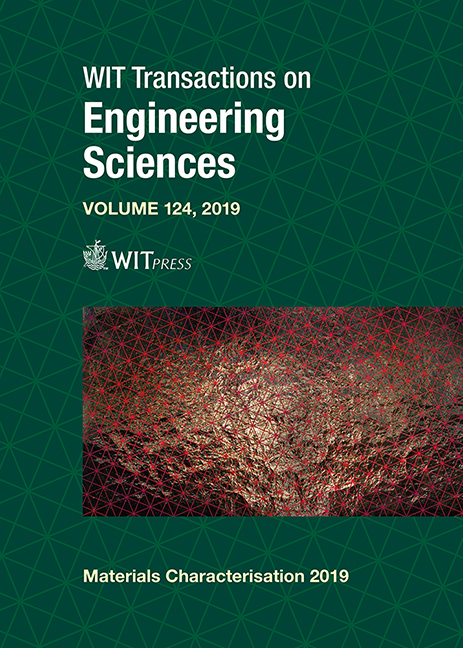COLLAGEN CROSS-LINKER EFFECT ON THE MECHANICAL PROPERTIES OF THE RADICULAR HYBRID LAYER IN RESTORATIVE DENTISTRY: A NANOINDENTATION STUDY
Price
Free (open access)
Transaction
Volume
124
Pages
9
Page Range
195 - 203
Published
2019
Size
322 kb
Paper DOI
10.2495/MC190191
Copyright
WIT Press
Author(s)
GIANPAOLO SERINO, CRISTINA BIGNARDI, CLELIA BOCCAFOSCHI, NICOLA SCOTTI, ELIO BERUTTI, ALBERTO AUDENINO
Abstract
Bond strength between the dentin and the restorative resins is deeply dependent on the nature of their interface. Resins impregnate dentin, which is rich in collagen fibers. This in vitro study aimed to evaluate the effect of collagen carbodiimide cross linker agent (EDC) on the mechanical properties of the adhesive interface in endodontically treated teeth. Twenty upper premolar teeth were selected and divided into two groups according to the dentin pretreatment procedures: no EDC application (group A) and EDC application (group B). Three typical zones, i.e. the dentin, the radicular hybrid layer and the resin, were analyzed using a Nanoindenter XP equipped with a diamond Berkovich indenter. The input curve was characterized by loading and unloading phases with a strain rate value of 0.1 s-1 and, an intermediate dumbbell phase of 30 s. The maximum indentation depth was set to be 200 nm. The load-displacement curves were analyzed by using the “Oliver and Pharr” method. The mean values of nanoindentation modulus were determined for the dentin, the radicular hybrid layer and the resin for both the samples with and without crosslinker. In general, the application of EDC was found to modify the mechanical properties of the radicular hybrid layer. The mechanical properties of the radicular hybrid layer could be related to the efficient infiltration of the adhesive systems and collagen crosslinker through dentin.
Keywords
quasi-static nanoindentation, hybrid layer, collagen crosslinker, mechanical properties





